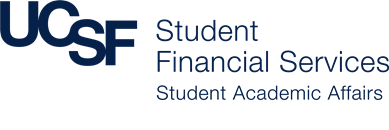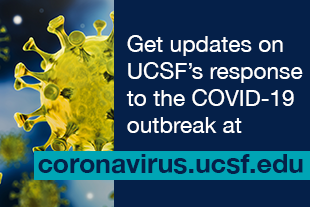COVID-19 Updates and Student Loans
-
What happens to my Federal Direct Loans with the onset of COVID-19?
The ratified Coronavirus Relief Bill, now known as the CARES Act, and President Trump’s executive order requires interest to be suspended on federal loans from March 13, 2020 to December 31, 2020. For borrowers in repayment, payments are not required during this period. Automatic payments for borrowers with ACH payments will be suspended by the loan servicers automatically. Suspended payments will continue to count toward forgiveness programs.
-
What happens to my health professions loans with the onset of COVID-19?HSRA is extending the waiver of interest and extending the opportunity for administrative forbearance on health professions student loan and Nurse Faculty Loan programs from March 13, 2020 through December 31, 2020. These policies apply to borrowers to the following programs:
- Health Professions Student Loan (HPSL)
- Primary Care Loan (PCL)
- Loans for Disadvantaged Students (LDS)
- Nursing Student Loan (NSL)
- Nurse Faculty Loan Program (NFLP)
Borrowers’ monthly payments will remain the same, but the full amount of the payment will be applied to already accrued interest and/or the outstanding principal. Borrowers who are unable to make payments on their loans due to the COVID-19 national emergency may request administrative forbearance.
Federal Direct Loans
-
Due to the federal Budget Control Act of 2011, passed by Congress, graduate students are no longer eligible for Federal Subsidized Direct Loan. Graduate students may apply for a Federal Unsubsidized Direct Loan.
-
What is a Federal Unsubsidized Direct Loan?
Eligibility for this federal loan is based on the standard student budget minus outside scholarships and other financial aid. It is not based on financial need so student/spouse earnings and assets are not considered. Per federal regulations, the maximum annual limit can be found on Types of Loans page.
The interest rate is fixed each year for the life of the loan taken out during that time (July 1 – June 30), unless the loan is consolidated. The current rate (7/1/2017 - 6/30/2018) is 6.0%. Interest begins to accrue as soon as funds are disbursed. You can elect to make interest payments while you are in school, thereby decreasing the amount you will ultimately repay, or defer interest until after you graduate or cease to be enrolled at least half-time. Accrued interest will be added to the principal (capitalized) at repayment if you choose this option. Loan repayment begins six months after you graduate or cease to be enrolled as a half-time student.
Funds are disbursed in equal quarterly installments. The Department of Education charges a loan fee which is proportionately deducted from each loan disbursement. The current loan fee is 1.069% for loans first disbursed before October 1, 2017.
Review “Step 3” of our application process for more information and to complete the Master Promissory Note. Once you've e-signed online, our office will receive an electronic notification of your application from the federal processor. You can complete the loan paperwork before you are admitted. Your loan will not be processed, nor any funds disbursed, until you are admitted to the program and begin your coursework.
-
What is the Direct Graduate PLUS Loan?
The interest rate is fixed each year for the life of the loan taken out during that time (July 1 – June 30), unless the loan is consolidated. The current rate (7/1/2017-6/30/2018) is 7.0%.
The standard student budget minus all financial aid including Federal Unsubsidized Direct Loan equals your eligibility for a Graduate PLUS. There is no annual maximum. Be aware that credit approval is required by the Department of Education for this loan. In addition to completing the online Federal Graduate PLUS Master Promissory Note, you must also authorize a credit check. Students who are denied due to adverse credit (e.g., 90 days or more delinquent on any debt, or credit report showing default, loan discharge, foreclosure, repossession, and bankruptcy) may need to have an Endorser (co-borrower). More information will be provided by the Department of Education.
Review “Step 3” of our application process for more information and to apply for the loan. Once you've e-signed online, our office will receive an electronic notification of your application from the federal processor. You can complete the loan paperwork before you are admitted. Your loan will not be processed, nor any funds disbursed, until you are admitted to the program and begin your coursework.
Funds are disbursed in equal quarterly installments. The Department of Education charges a loan fee which is proportionately deducted from each loan disbursement. The current loan fee is 4.276% for loans first disbursed before October 1, 2017.
-
What are my options if my Direct Graduate PLUS is not credit-approved by the Department of Education?
The Department of Education requires a credit check for the Graduate PLUS. Students with adverse credit are notified directly, along with their options. Students can appeal if the adverse credit information is incorrect, or provide document to the Department of Education if there are extenuating circumstances relating to their adverse credit history. Visit Studentaid.gov for more information. Students may also be able to apply with an endorser (co-borrower) who satisfies the credit requirements. Students should contact Applicant Services for Grad PLUS Loan Borrowers at 1-800-557-7394 (8am-8pm ET), Monday to Friday, if their loan is denied.
UCSF IS UNABLE TO OFFER ANOTHER LOAN TO REPLACE THE GRADUATE PLUS. Students who are unable to borrow a Graduate PLUS are expected to cover the remainder of their educational expenses with their own resources or family assistance. It is the student’s responsibility to secure adequate funding to cover cost of attendance before beginning school.
Federal Work Study
-
What is Federal Work-Study?The Federal Work Study Program (FWS) provides jobs for students with financial need, allowing them to earn money to help pay education expenses. This program encourages community service work and work related to a student's course of study. Students may apply for FWS under Basic or Full funding application options. View our Federal Work-Study webpage for more details. It is not likely that work-study will be feasible for the MS-HPL students.

